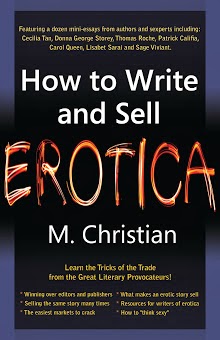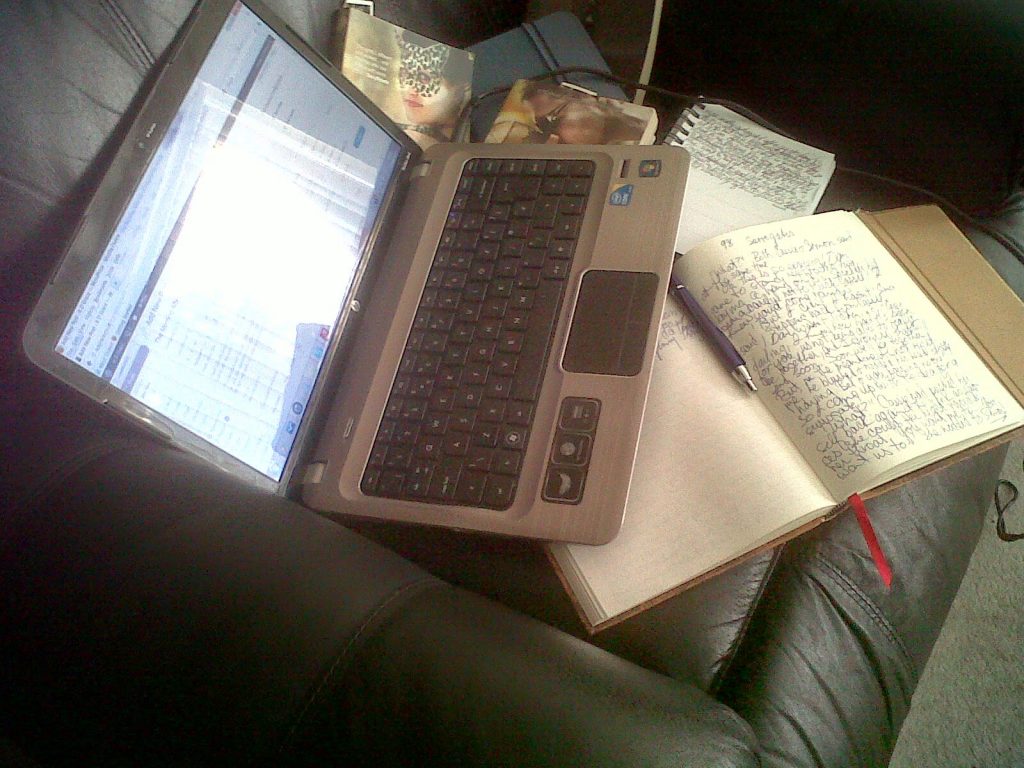by Donna George Storey
I haven’t seen the Showtime! series Masters of Sex yet and probably should as part of my ongoing research on sex and culture, but I did recently plough through the book that inspired the series, Masters of Sex: William Masters and Virginia Johnson, the Couple Who Taught America to Love by Thomas Maier (Basic Books, 2009). I don’t intend to give a full book review, but let’s put it this way: there’s still plenty of room for an intelligent, nuanced study of the lives and work of Masters and Johnson in the future. Yet in spite of its sensational-journalistic sensibility, Maier’s book did make me ponder yet again the deeply-rooted obstacles erotica writers still face decades after Masters and Johnson compiled their ground-breaking data.
William Masters began his career as a gynecologist specializing in fertility problems. Although he and his colleagues used all of their intellectual and surgical powers to help infertile couples conceive, they were forbidden to study the natural process by which human life was created. Clinical experimentation on human sexuality was not only scandalous, it was illegal in some states. The book quotes one doctor as, more benignly but with due disgust, asserting that a clinical study of sex as Masters and Johnson undertook in their laboratory would take the “mystery” out of it. Another gynecologist said that when his patients complained of unsatisfying sex lives, he had no help to offer but a warm hug, insisting that the hug did wonders. (To which I reply either “a hug” is a euphemism for much more, or this particular doctor was way gone in his god fantasy.)
Possibly we’re so used to regarding sex as a sacred mystery or a lawless instinct in need of severe legal and cultural restriction that this willed medical ignorance does not at first seem as horrifying as it truly is. What if the medical profession decided cancer was clearly a mark of god’s retribution and thus we should not destroy the “mystery” of the affliction by attempting to understand and treat it? A warm hug would surely provide the cancer patient with adequate intervention?
Very fortunately, William Masters had the courage to begin to study this taboo but fundamental aspect of human existence. Virginia Johnson’s initial key contribution was recruiting women to be subjects for the higher good of replacing myth with fact. Many eagerly participated for just that reason (I believe them—and thank you, sisters!) Johnson and Masters were, for a time, media stars. Their books were best sellers and did indeed overturn a lot of myths about sexuality, female and male both.
Still I’m sad to say that while sex guides and manuals are readily available in the present day, scientific studies of sexuality are still seriously underfunded. You can get grants for any kind of weird diet study in the name of the “obesity epidemic,” but to my knowledge, there’ve been no major breakthroughs in our understanding of human sexual response since the publication of Masters and Johnson’s work. (Please correct me if I’m wrong—even the discovery of the G spot is still controversial and not supported by the few later studies.)
So here’s my question—why don’t people WANT to know about sex? Why aren’t we insisting that our doctors and scientists delve deeper into this important aspect of our lives? Now I’m the first to admit that science has its own severe limitations, but isn’t it sad that we’re still held hostage to an ancient fear of sexuality? How ironic indeed that the Biblical word for sex is to “know” another person, when religion is so often used to perpetuate sexual ignorance.
In mulling this over, I came up with a few ideas—all based on fear. Fear of finding out we don’t measure up sexually. Fear of female sexual response if women were more educated about their potential. A continuing fear of the chaos that would ensue if science confirmed that the sexual urge and its satisfaction are just plain good for you.
In her comment on my April column here at ERWA, Remittance Girl introduced a concise and elegant explanation for all of this fear and willed ignorance and how it affects the response to erotica, which I will now define as writing that seeks to delve deeper into the truth of sexual experience, a study that can be taken on by any sincere amateur who will nonetheless learn much about her own sexuality in the process. RG paraphrases Slavoj Zizek thusly: “You can either have explicit sex, or you can have depth of meaning in narrative, but you can’t have both. That is forbidden.”
Is this refusal to give sex deeper meaning (beyond procreation) why scientific studies of sex are still severely circumscribed as well? Can you imagine the NIH enlisting subjects to participate in laboratory sex for the sake of a greater good?
In fact, I do believe there is a link between the work of Johnson and Masters and the efforts of erotica writers to explore the complexities of the erotic experience, to give it a broader and deeper meaning, to take it seriously in the pursuit of greater knowledge, as any scientific study implicitly does. What we do as erotica writers has meaning, it is important, and it carries on the legacy of all doctors, philosophers and writers in centuries past who chose sexual knowledge and self-knowledge over fear and ignorance. So there, I was a little depressed about all this when I started writing, but I see now there is truly hope and it’s in our vivid imaginations and the fingers tapping our keyboards.
Write on!
Donna George Storey is the author
of Amorous Woman (recently released as an ebook) and a new collection of short
stories, Mammoth
Presents the Best of Donna George Storey. Learn more about her
work at www.DonnaGeorgeStorey.com
or http://www.facebook.com/DGSauthor





